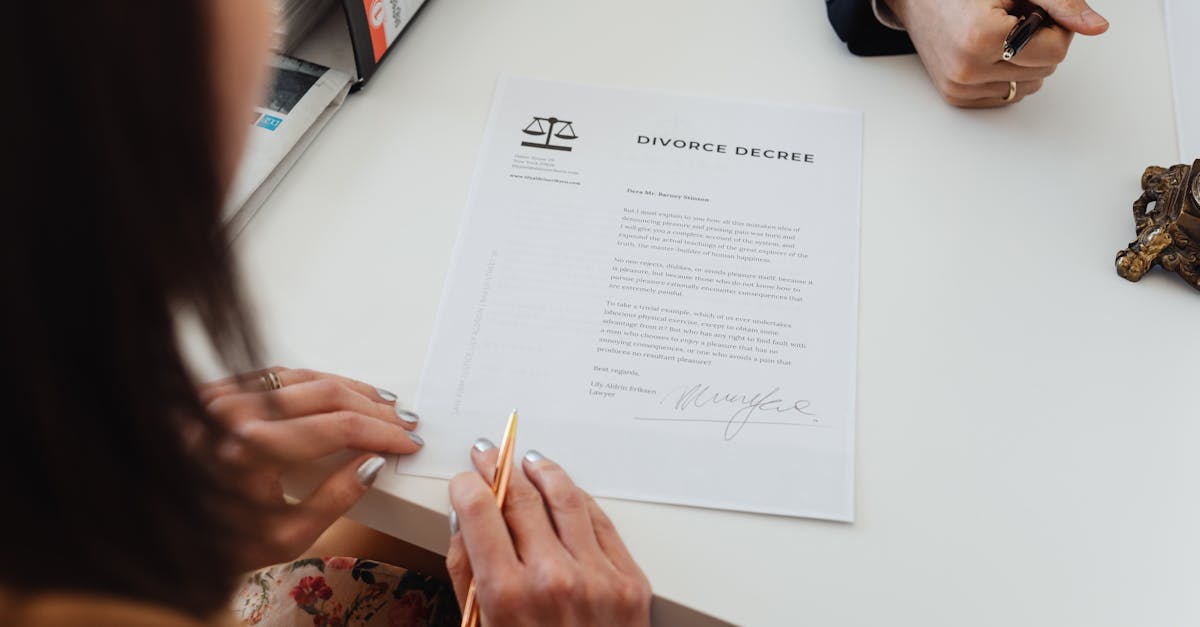
AntiDiscrimination Laws for Landlords
Anti-discrimination laws for landlords in Texas have been updated in 2024 to provide clearer guidelines on tenant selection processes. Understanding the protected classes under these laws is crucial for landlords to ensure compliance and fairness in their rental practices. Advising clients on landlord-tenant law in Texas includes educating them on the protected classes, such as race, religion, disability, and familial status, which cannot be used as grounds for denying a potential tenant.
It is essential for landlords to be aware of the permissible criteria for tenant selection to avoid violating anti-discrimination laws. By having a thorough understanding of these regulations, landlords can navigate the tenant screening process effectively and lawfully. Advising clients on landlord-tenant law in Texas involves emphasizing the importance of treating all applicants equally and making decisions based on legitimate qualifications rather than discriminatory factors.
Understanding Protected Classes in Tenant Selection
Protected classes are specific groups of individuals protected by anti-discrimination laws. In the realm of tenant selection, landlords must navigate these classes carefully to avoid legal repercussions. Advising clients on landlord-tenant law in Texas entails emphasizing the importance of treating all prospective tenants equally, regardless of their belonging to a protected class. Landlords are prohibited from discriminating against individuals based on factors such as race, color, religion, national origin, sex, familial status, or disability.
Understanding these protected classes is crucial in upholding fair housing practices. Landlords must ensure that their tenant selection process is free from any form of bias towards individuals in these groups. Advising clients on landlord-tenant law in Texas underscores the need for landlords to base their decisions solely on legitimate criteria such as creditworthiness, rental history, and criminal background checks, rather than on characteristics that fall within protected classes. By adhering to these guidelines, landlords can mitigate legal risks while fostering inclusive and equitable rental practices.
Subleasing Restrictions in Texas
Subleasing is a common practice in the rental market, allowing tenants to rent out their unit to another individual. However, under the new rental laws in Texas for 2024, there are restrictions that tenants need to be aware of. Advising clients on landlord-tenant law in Texas, it is essential to note that unless the lease explicitly allows for subleasing, tenants may not sublet their rental unit. Landlords have the right to include a clause in the lease agreement that prohibits subleasing without prior written consent.
Additionally, tenants who sublet their unit without the landlord's permission may face eviction proceedings. It is crucial for tenants to understand their rights and responsibilities when it comes to subleasing under the new rental laws in Texas. Advising clients on landlord-tenant law in Texas, it is advisable for tenants to always seek written approval from their landlord before subleasing their rental unit to avoid potential legal issues.
Permissible Subleasing Situations under the New Laws
Permissible subleasing situations have undergone notable changes under the updated rental laws in Texas for 2024. Understanding these new regulations is crucial for both landlords and tenants to ensure compliance and avoid potential legal issues. Advising clients on landlord-tenant law in Texas, it is essential to note that under the new laws, tenants can sublease their rental unit with written consent from the landlord. This written agreement should explicitly outline the terms and conditions of the sublease to avoid any misunderstandings in the future.
Furthermore, it is important to highlight that tenants are responsible for ensuring that sublessees abide by the original lease agreement terms, including rent payments and property upkeep. Failure to adhere to these terms could result in consequences for both the tenant and the sublessee. In cases where a tenant subleases without proper consent or violates the terms of the sublease agreement, landlords have the right to take legal action as deemed necessary under the new rental laws in Texas.
Maintenance and Repair Responsibilities
Maintenance and repair responsibilities under the new rental laws in Texas in 2024 are crucial aspects to consider for both landlords and tenants. The specific duties assigned to each party regarding property upkeep have been clearly defined to minimize disputes and ensure the property's proper maintenance. Advising clients on landlord-tenant law in Texas includes explaining that landlords are responsible for maintaining the property's structural integrity, ensuring essential services like plumbing and heating are in working order, and addressing any issues that affect the tenant's health and safety.
Moreover, tenants are typically responsible for maintaining cleanliness and general upkeep of the property, promptly reporting any maintenance issues to the landlord, and conducting minor repairs as outlined in the lease agreement. Clarifying these maintenance and repair responsibilities is essential to prevent misunderstandings and potential conflicts between landlords and tenants. Advising clients on landlord-tenant law in Texas involves discussing these responsibilities in detail to ensure both parties are aware of their obligations and rights under the new rental laws.
Clarification on Landlord and Tenant Maintenance Duties
Advising clients on landlord-tenant law in Texas involves highlighting the specific maintenance and repair responsibilities of both parties. Landlords in Texas are generally responsible for maintaining the property in a habitable condition, ensuring basic amenities are functioning properly, and promptly addressing any necessary repairs. Tenants, on the other hand, are expected to conduct routine upkeep such as cleaning, changing light bulbs, and replacing air filters. It is crucial for both landlords and tenants to clearly understand their maintenance duties to prevent misunderstandings and disputes.
Furthermore, under the new rental laws in Texas, landlords are required to make repairs within a reasonable period after being notified by the tenant. Failure to do so could result in legal consequences such as a rent reduction or termination of the lease agreement. Tenants must also allow landlords or maintenance personnel access to the property to carry out necessary repairs. By adhering to these maintenance and repair guidelines, landlords and tenants can maintain a harmonious rental relationship while fulfilling their respective obligations as outlined in Texas landlord-tenant law.
FAQS
What are the anti-discrimination laws for landlords in Texas under the new rental laws in 2024?
Landlords in Texas are prohibited from discriminating against tenants based on protected classes such as race, color, national origin, religion, sex, familial status, or disability.
How can landlords understand the protected classes in tenant selection under the new rental laws in Texas in 2024?
Landlords need to be aware of the protected classes under federal and state laws to ensure fair and non-discriminatory tenant selection practices.
Are there any subleasing restrictions in Texas as per the new rental laws in 2024?
Yes, the new rental laws in Texas may impose certain restrictions on subleasing arrangements, and landlords should review the specifics to ensure compliance.
What are the permissible subleasing situations under the new rental laws in Texas in 2024?
The new laws may outline specific situations where subleasing is allowed, such as temporary relocations or financial hardships, subject to landlord approval.
What are the maintenance and repair responsibilities for landlords and tenants under the new rental laws in Texas in 2024?
The new laws clarify the maintenance and repair duties of both landlords and tenants to ensure that rental properties are adequately maintained and safe for occupancy.




